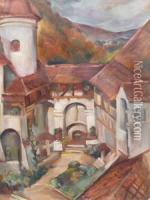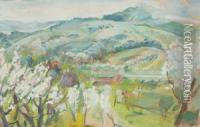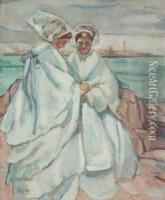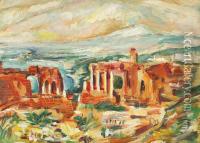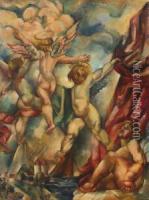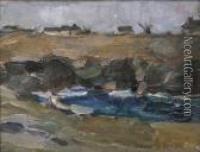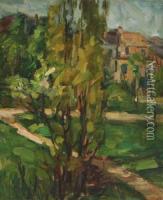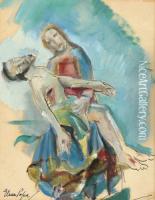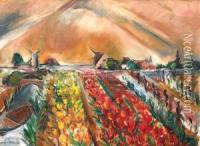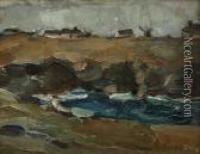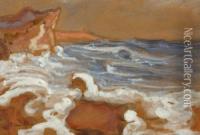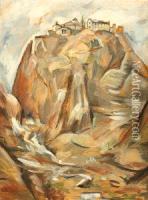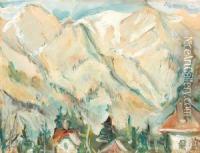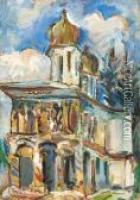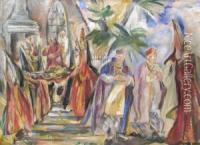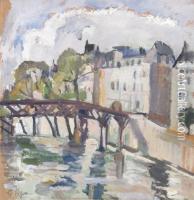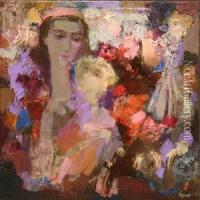Elena Popea Paintings
Elena Popea was a Romanian painter, known for her contributions to modern art in Romania during the early 20th century. Born on December 17, 1879, in Brașov, she was one of the few female artists of her time to achieve recognition in a predominantly male-dominated art world.
Elena began her art education at the School of Fine Arts in Bucharest, under the guidance of distinguished Romanian painters such as George Demetrescu Mirea and Constantin Artachino. Her talent was evident from the beginning, and she quickly stood out among her peers. Despite the challenges faced by women in the arts at that time, Popea's determination led her to further her studies abroad.
She continued her education in Munich at the Women's Academy, before moving to Paris, which was the center of the art world during that period. In Paris, she studied at the Académie de la Grande Chaumière under the tutelage of renowned artists like André Lhote and Émile-René Ménard. Paris provided Popea with exposure to the avant-garde movements of the time, such as Impressionism and Post-Impressionism, which significantly influenced her style.
Elena Popea's work is characterized by a delicate use of color and a focus on capturing the essence of her subjects, which often included landscapes, still lifes, and portraits. Her paintings radiate a sense of tranquility and harmony, revealing her personal connection with nature and her interest in exploring the emotional depth of her subjects.
Upon returning to Romania, Popea became an active participant in the country's artistic life. She was involved with various artists' groups and frequently exhibited her work. One of her most notable contributions was her involvement with the 'Arta Română' society, where she exhibited alongside other prominent Romanian artists.
Elena Popea's artistic career was marked by her continuous exploration and development of her style. She embraced the modernist currents of her time while maintaining her unique artistic voice. Her work received considerable acclaim, and she was awarded numerous prizes for her contributions to Romanian art.
Popea's legacy extends beyond her paintings; she is remembered as a pioneer for Romanian women in the arts, inspiring future generations of female artists. Her dedication to her craft and her success in overcoming the gender barriers of her era have cemented her place in Romanian art history.
Elena Popea passed away on January 4, 1941, in Bucharest, leaving behind a rich oeuvre that continues to be celebrated and studied for its artistic merit and historical significance.
